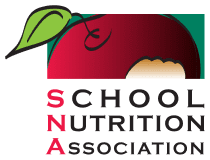Full Article
Please note that this study was published before the implementation of Healthy, Hunger-Free Kids Act of 2010, which went into effect during the 2012-13 school year, and its provision for Smart Snacks Nutrition Standards for Competitive Food in Schools, implemented during the 2014-15 school year. As such, certain research may not be relevant today.
As usual, this issue of The Journal of Child Nutrition and Management is filled with practical information that is useful to child nutrition professionals, state agency professionals, educators, researchers, university students, and others. This issue includes the 2010 joint position paper of the American Dietetic Association, School Nutrition Association, and Society for Nutrition Education that comprehensive, integrated nutrition services in schools are an essential component of coordinated school health programs and will improve the nutritional status, health, and academic performance of our nation’s children. This joint position paper affirms schools as an important partner in health promotion.
Logan and colleagues tested the feasibility, effectiveness, and costs of using Medicaid and State Children’s Health Insurance Program data to verify applications for free and reduced price school meals. They found that direct verification saved time, improved verification, and reduced burdens on families.
Rice and colleagues compared cooperative and noncooperative purchasing in school nutrition programs through a survey of school foodservice directors. Those who responded cited lower costs, increased competition, and reduced paperwork as reasons for joining a cooperative purchasing group.
Zoellner and Carr surveyed school nutrition managers’ nutrition literacy skills and found that the majority had adequate literacy skills but knowledge of nutrition was limited. State agencies, USDA, and other training professionals can use the results of this study to reduce barriers associated with locating and comprehending complex nutrition information and also to make reliable sources of nutrition information that are pertinent to the needs of SN managers easily accessible.
Bark and colleagues explored the benefits and challenges associated with recess before lunch among Montana elementary and middle school principals. Benefits included increased food consumption, a more pleasant eating environment, and improved student behavior. Their results can support implementation of recess before lunch as an effective school wellness strategy.
National Food Service Management Institute researchers have been identifying best practices for school nutrition programs. Castillo and colleagues completed best practices research for serving students with special food and nutrition needs. With the assistance of two expert panels that included school nutrition professionals and a school nurse, they created a web-based self-assessment tool containing eight goals and 137 best practice statements within four practice categories. Estepa Asperin and Castillo developed a best practice guide for increasing high school student participation and satisfaction in the National School Lunch Program. The guide includes four sections on food quality, staff, program reliability, and marketing/communications.
Rainville and colleagues investigated the effect of nutrition labels at the point of selection in high schools. The study included focus groups with high school students, nutrition labels posted in nine high schools, and interviews with school nutrition directors. The nutrition labels did not seem to influence students’ selections but directors who offered healthy choices did influence students’ selections.
This issue also includes research abstracts from the 2010 School Nutrition Association Annual National Conference and Nettles’ summary of child nutrition research conducted by the National Food Service Management Institute. I would like to acknowledge the assistance of Amber King, MS, RD and Kyunghee Choi, MS, RD from Eastern Michigan University. They have contributed their talents and expertise to ensure the continued success of the Journal. I look forward to your feedback on the Journal.
Alice Jo Rainville, PhD, RD, CHE, SNS
Editor
